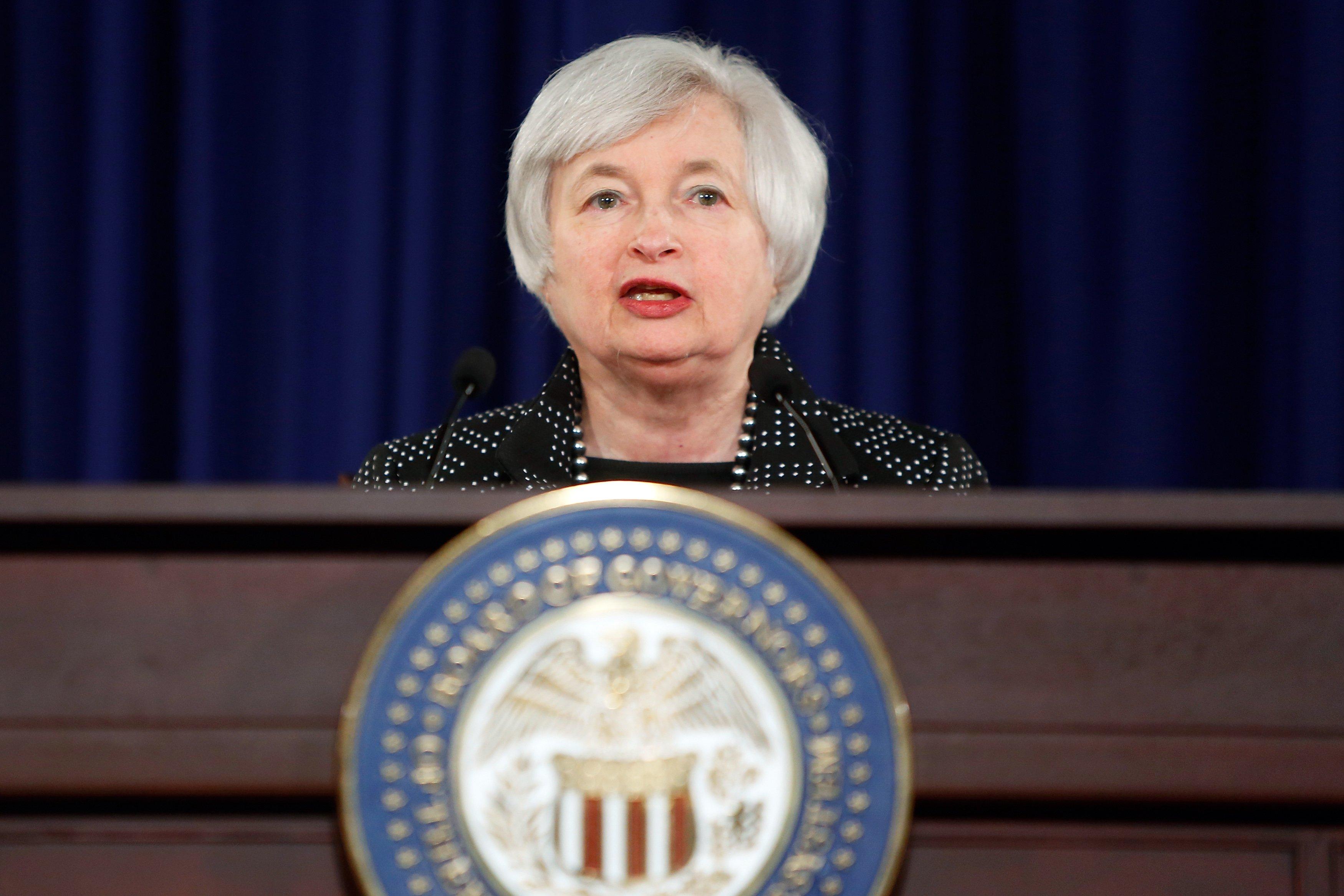Charting a Path to "Normalisation"
Bareksa • 14 Jul 2014

U.S. Federal Reserve Chair Janet Yellen holds a news conference following two-day Federal Open Market Committee meeting at the Federal Reserve in Washington - (REUTERS/Jonathan Ernst)
Others expect U.S. interest rates to rise sooner.
Bareksa.com - Investors shift focus this coming week from trouble spots such as Portugal's biggest listed bank to a marathon testimony by the U.S. Fed chair that could help chart a global path towards post-crisis "normalisation".
Concerns about losses associated with the founding family of Banco Espirito Santo had threatened to rattle euro zone markets, but by Friday traders had decided that BES was unlikely to disrupt Portugal's financial system or revive broader worries about the bloc's weaker economies.
In any case, Janet Yellen's two-day appearance in the U.S. Congress from Tuesday will dominate global markets, which want above all to know how long the Federal Reserve will leave interest rates low after an unprecedented period of cheap money since the financial crisis.
While October is likely to mark the end of the central bank's money printing, investors are looking for hints of an interest rate hike early next year, which would signal a return to normality after the Great Recession and its aftermath.
But much depends on the health of the U.S. economy and its ability to bounce back from a disastrous first quarter.
The number of Americans filing new claims for unemployment benefits for the week ended July 5 fell to one of its lowest levels since before the 2007-09 recession, more evidence of a strengthening labour market.
The consensus has been for a rate hike in late 2015, but many economists are bringing forward their forecasts, with European-based banks including BNP Paribas expecting the Fed to hike near the middle of next year.
Others expect U.S. interest rates to rise sooner.
"There's a pessimistic view of the economy among some in the market, but a stronger jobs picture and rising inflation will prompt the Fed to act," said Julian Jessop, chief economist at Capital Economics in London, who sees a rate rise in March.
Worries about soft growth will keep the Bank of Canada from hiking interest rates until late next year, economists say, but rising prices are expected to temper expressions of concern about low inflation in its policy statement on Wednesday.
Most investors expect the Bank of England to be the first major central bank to raise rates since 2007 as the economy recovers from a long period of stagnation.
CHINA'S TEST
The British central bank held rates at record lows last week but is expected to raise them late this year or in 2015.
Investors will hear from Governor Mark Carney and his deputy Andrew Bailey on Tuesday at the British parliament when they face the Treasury Committee, while jobs data for June due out on Wednesday will give the market crucial signals.
In China, the success of authorities' efforts to keep the economy growing at around 7.5 percent will be tested by the second quarter gross domestic product (GDP) reading due on Wednesday, with other data including retail sales for June.
Economists polled by Reuters expect the first quarter's 7.4 percent GDP reading to be repeated in the second. Premier Li Keqiang said last week the Chinese economy still faced risks and he will further fine-tune policies.
June new house price data will also give a sense of how far China's housing slowdown is dragging on growth.
NO 'MATERIAL STRESS'
The European Central Bank's President Mario Draghi faces a different challenge in trying to revive the euro zone economy. While losses on loans will not put Banco Espirito Santo at risk of running short of capital, ripples of concern forced Spain's Banco Popular to call off a bond issue and Greece managed to place just half of its debt issue.
Portugal's government assured investors that the country's financial system was sound, steadying markets, although questions remain about the Espirito Santo business empire.
"If this uncertainty about BES continues, then peripheral debt looks likely to underperform and more investors will look to reduce their exposure," said Peter Chatwell, an interest rates strategist at Credit Agricole CIB, referring to countries such as Italy, Spain and Ireland.
"But I don't think is going to put material stress ... on other peripheral countries," he said.
Draghi will speak at the European Parliament on Monday evening in Strasbourg and will face questions on issues such as the slowdown in the German economy.
Investors will look to the July ZEW survey on economic sentiment on Tuesday to see how great the impact of the crisis in Ukraine has been on confidence in Germany after the mood deteriorated following a strong start to the year.
"The last few weeks, with the numbers out of Germany, have made me more pessimistic," said Carsten Brzeski at ING. "The picture across the euro zone countries is not encouraging with France in a mess and Spain still struggling with unemployment." (Source : Reuters)